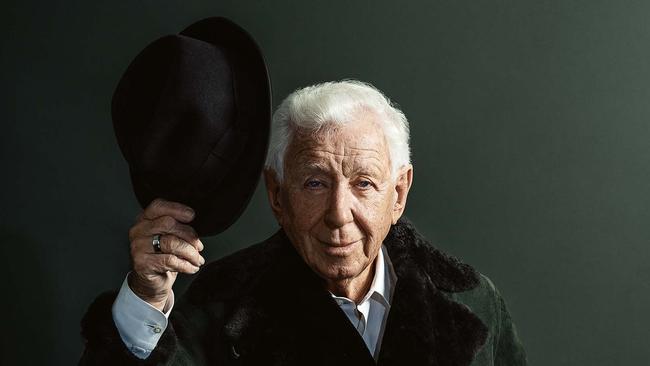
“You’ve got zero rope,” the author of Vernon God Little and other novels announced. “You can’t cut any corners there because someone will watch you. It’s a dobby place compared to (Britain). I think it is based on history. It’s always been a managed population, which regarded its spirit as inherently dangerous and criminal, and it is, God love it, a very suspicious country, of itself. It is suspicious of its citizens.”
The 2003 Man Booker Prize winner had his own reasons for such caustic commentary — he says his misspent younger days involved Australian police cells and courts — but his words, in an interview in London, shocked me.
Like my colleague, Steve Waterson, whose article in Inquirer on Saturday attracted much reader debate, I had long believed in our rugged individualism, our laid-back, egalitarian spirit, and did not see Australians as coerced, or even compliant. DBC’s analysis may be exaggerated but I’ve come to agree that any larrikin spirit was buffed out of us long before COVID-19 — and what’s more, we’re happy about it.
It’s true that a couple of hundred years back there was a more independent streak. In her new book, People of the River, historian Grace Karskens notes the “resistance to authority” of those who farmed the banks of the Hawkesbury in NSW from the 1790s. Those early settlers were impossible to corral. Towns, Karskens writes, necessitate a loss of “certain personal liberties” but “on their own farms, the settlers could do as they pleased”.
Today, the instinct to do as we please rather than act as linked individuals in a bigger project is much reduced but it has little to do with recent social engineering or the so-called nanny state. It runs much deeper: we are culturally comfortable with boundaries and it’s little surprise millions of Australians have been happy to follow their leaders during the pandemic. Yes, some refuse to comply but, unlike the US, where resistance to authority is glorified, Australian culture does not sanction excessive individualism. And a good thing, too. We may like to believe Americans are entrepreneurial geniuses, but how to reconcile that with their failure at any sort of co-ordinated, collective action to manage the global sickness that is coronavirus?
You can mock Australians who fall into line, agree to stay home for months during COVID, pay taxes, recognise the value of the public service, accept compulsory voting. But compliance is only a problem if you believe institutions and authority and rules are inherently bad for a society.
Meanwhile, Australians have this year demonstrated something far more modern than laconic larrikinism — a willingness to listen to experts, to maintain a level of trust in our health and political systems and, yes, to follow a few rules. Lament the death of the larrikin if you like, but I suspect we are not for turning. We like the responsible centre and we are not greatly susceptible to populists or extremists of any kind. Perhaps there was a different spirit when we were a motley collection of colonies, before Federation and the establishment of a rational, enlightened nation with a raft of interventionist social and economic policies that shaped our attitudes to systems and authority.
There’s another factor. We are a nation of immigrants and while that might suggest a nation of go-getters, with the courage and energy to leave their homes for economic improvement, it also suggests a nation of people who figure out pretty quickly how to fit in, to assimilate and not rock the boat. For every Frank Lowy there are millions of migrants who have instilled compliance, not revolution, in their children.
There’s something lost and something gained in the inevitable trade-offs between the individual and the group in every culture. Australia is good at applying rules that usually make sense and managing society without leaving too many people too far behind. But we’re not so good at making the most of the free-market system we support, not so good at taking risks or at imagining a different economy or society that will help us meet the challenges of the 21st century.
But to blame it on the bureaucrats or “nanny-statism” of the past 30 years seems unfair. Some public servants have surely gone too far in the pandemic but I can’t picture Australians as rebels stymied by officialdom, desperate to break out if only they were offered a libertarian alternative. There’s no real harm in eulogising irreverence and larrikinism, but that myth is not particularly helpful.
If we want a nation of innovators and independent thinkers, we might do better to appreciate the reality that Australians are, by and large, pretty comfortable with the state, with government, with institutions, boundaries and rules, and work back from there.





A few years back, the super-charming Australian-born author, DBC Pierre, told me I lived in one of the most rules-bound nations in the world.